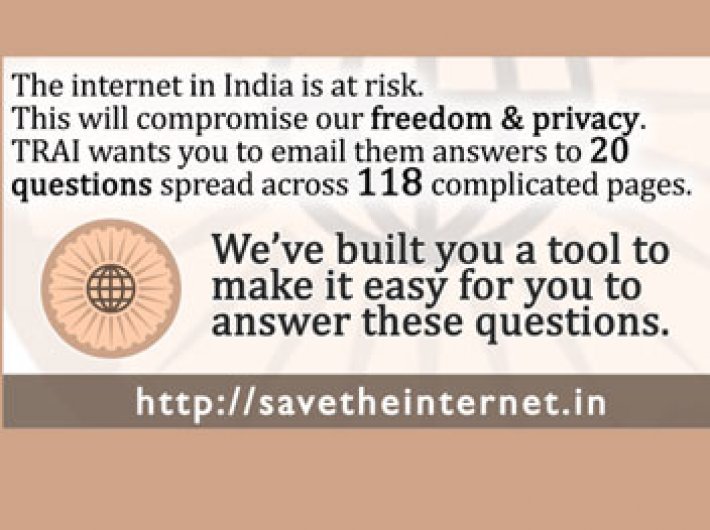National association of software and services companies (Nasscom) has come out strongly for strengthening of net neutrality. Cautioning the government against licensing of content and application service providers, the industry body said that there shouldn’t be any price or non-price based discrimination in access of content by telecom service providers.
In its suggestions to the TRAI on consultation paper on regulation of over the top (OTT) players, the industry body has indicated at it is against the current zero rating practices, informed Nasscom president R Chandrashekhar on Wednesday.
READ: Startups send SOS to Narendra Modi
Airtel Zero and Facebook’s internet.org are examples of non-price based discrimination in access of content.
Stressing on the need for a clear definition of net neutrality, Chandrashekhar, who has served as telecom secretary, said, “Nasscom and IT industry are in favour of net neutrality. The devil, however, lies in details. Everybody agrees with neutrality. But [the question is] what constitutes it?”
The ‘guiding principles’ of net neutrality framework, he said includes unfettered right of the user to make an informed choice when they decide to access content and services. These users’ right to chose what they want to access and see is inviolable, akin to freedom of speech, he said.
“This right will get compromised if the regulation fails to proscribe price or non-price based discrimination in access of such content by telecom service providers,” he said.
The criteria for net neutrality framework propose ‘access for all’.
“There should be no right or discretion for a TSP to effectively block or censor legal content, to throttle lawful internet traffic and or to determine how user use internet, within net management or commercial practices.”
“There has to be a level playing field for platforms and services, especially the start-ups, who don’t have the wherewithal to get into a deal with TSPs,” Chandrashekhar said.
If at all there has to be a prioritization of any kind of services or otherwise as prescribed by regulation, it should be accompanied by public declaration, he said, adding that there shouldn’t be any price discrimination in that prioritization.
“There should be no double dipping of TSPs.” This means that user and content provider both shouldn’t be paying for accessing the respective service, he said. Security restrictions as required for ensuring reliable services and lawful demand of security agencies, he further stated.
He also emphasized that viable telecom and thriving application service providers industries are not mutually exclusive. We must create a virtuous synergy between the two, he said. “In our view solutions lies in aligning the revenue growth with data consumption pattern,” he said.
He said it also important to dispel the myth that application/content service providers are currently not regulated. The Information Technology Act and its different rules pertaining to intermediaries and interception are applicable to Internet Platforms and Services, as also Code of Criminal Procedure, IPC, among others, he said.
Sanjeev Bhikchandani, chair of Nasscom internet council said, “any stifling regulations restricting access to internet or internet platforms and services would not only seriously hamper this prospect of development but also suppress growth and success of innovation driven tech start-ups and SME companies”.

